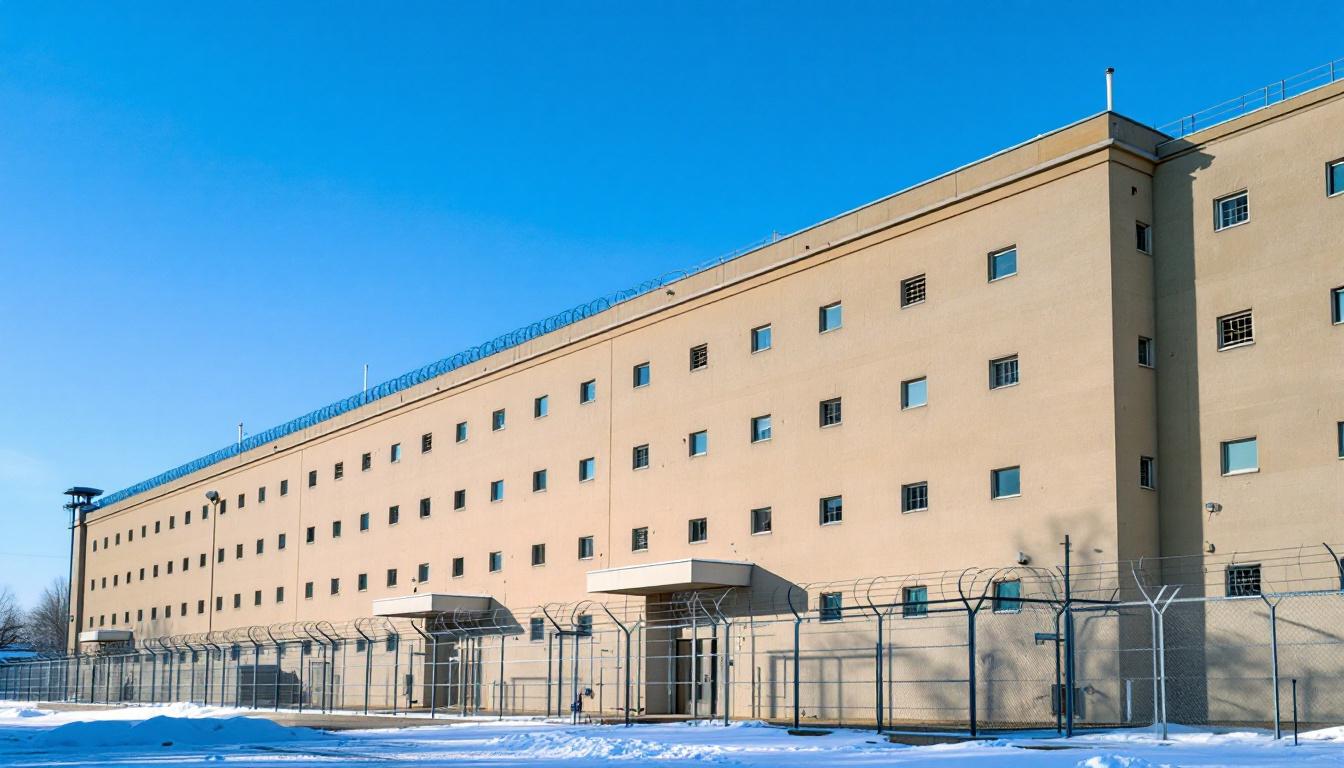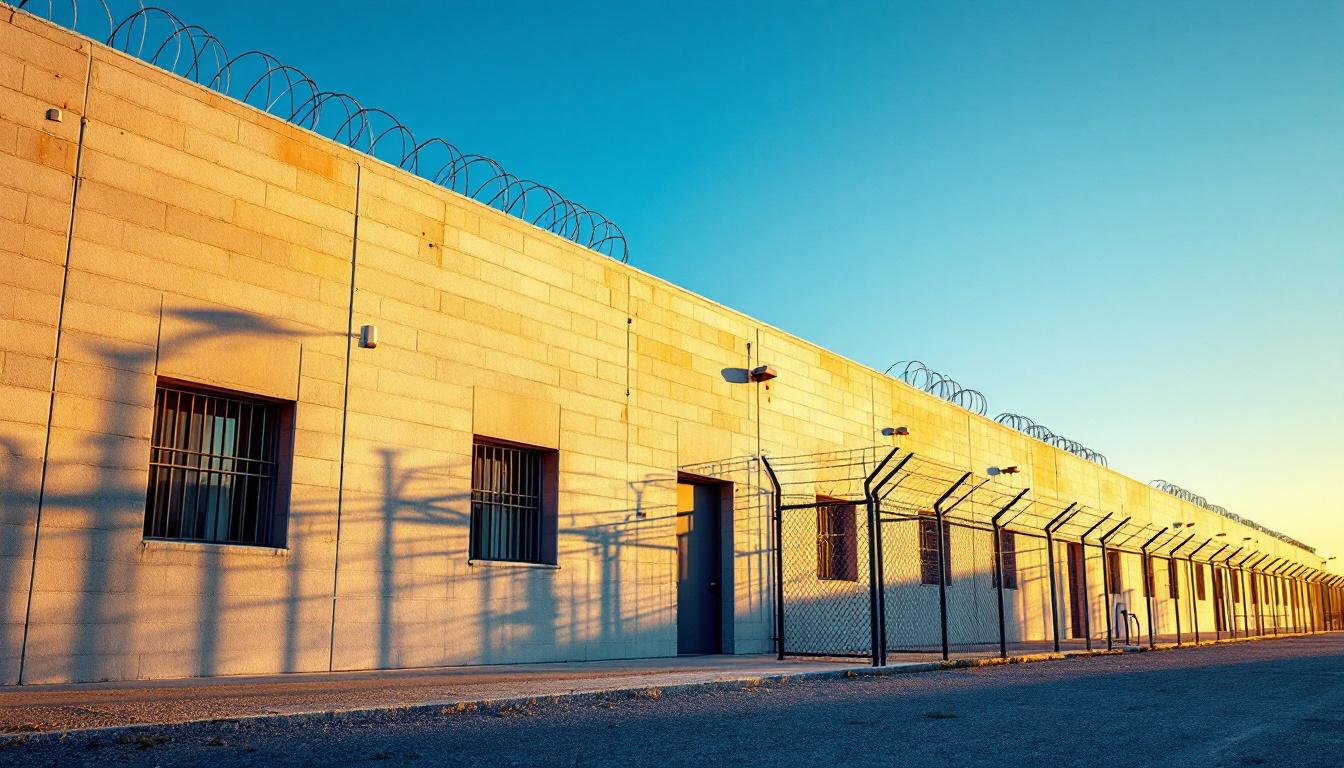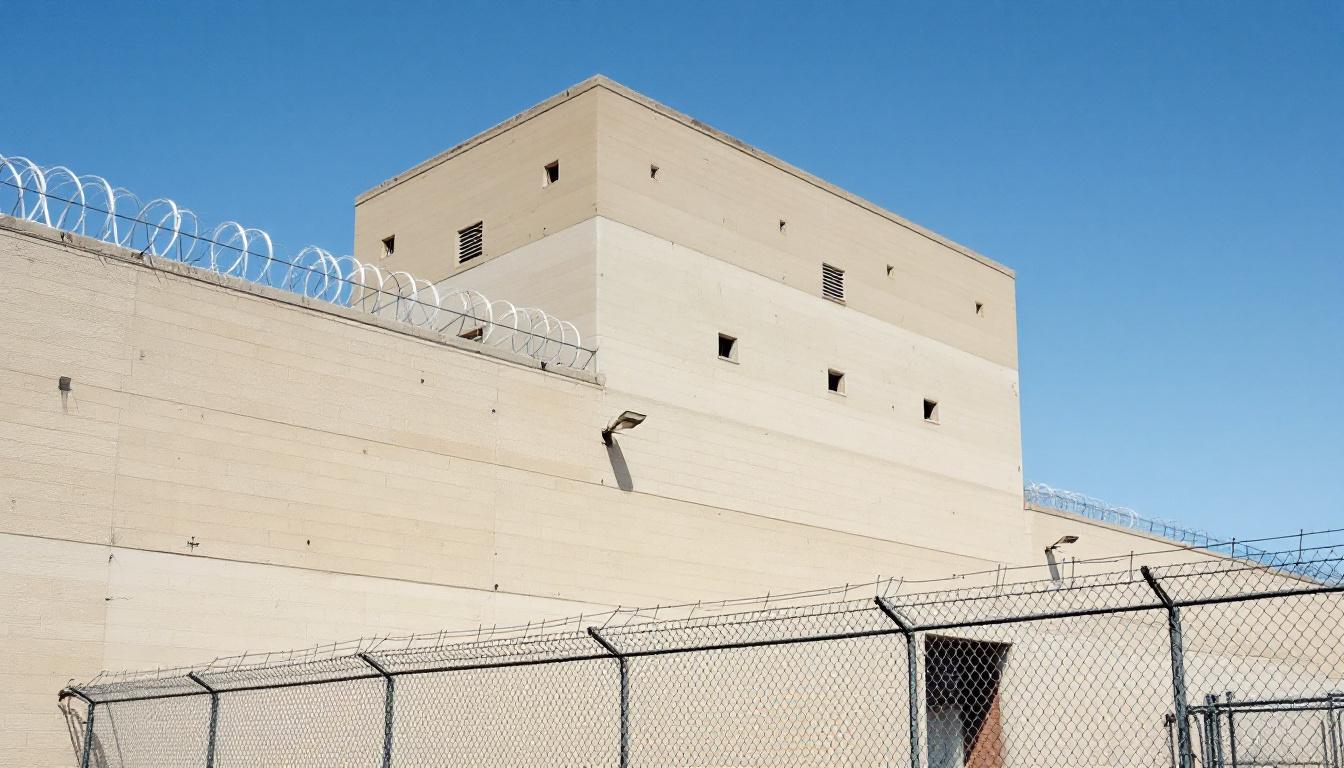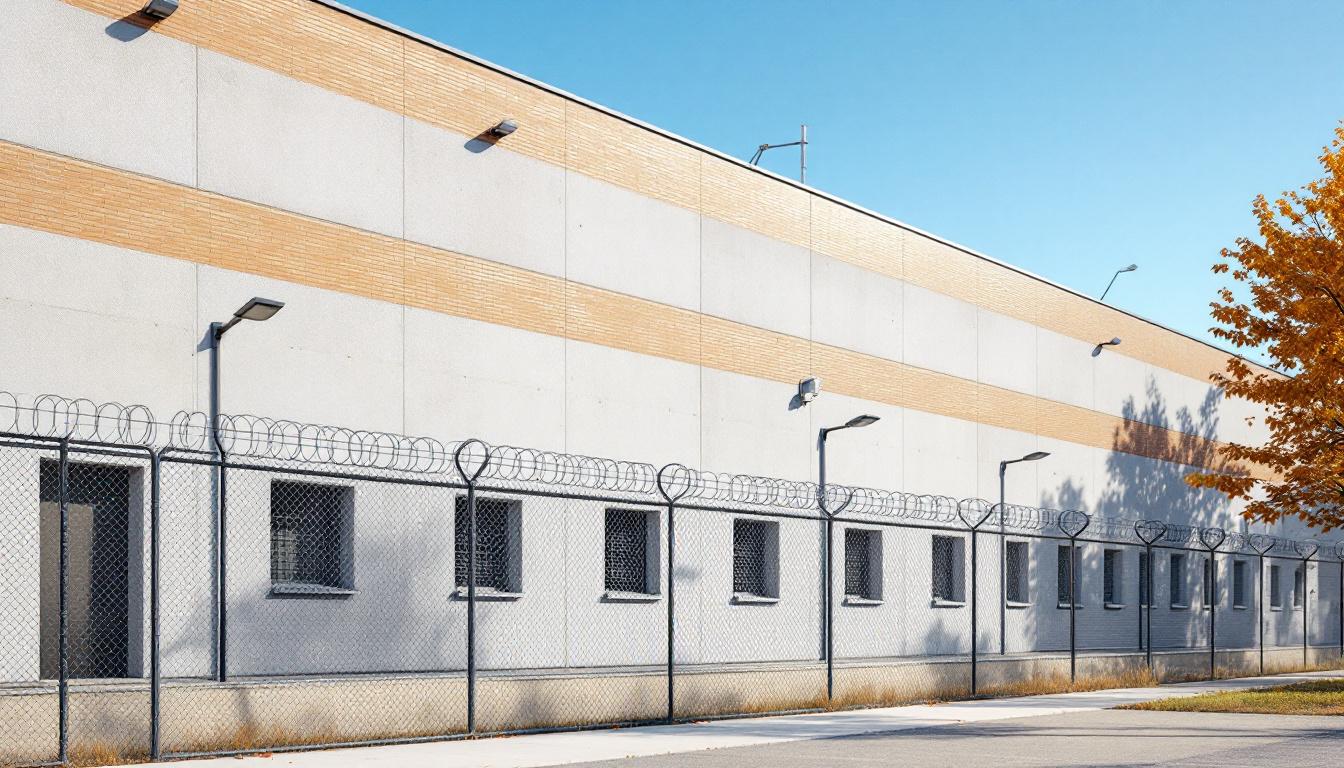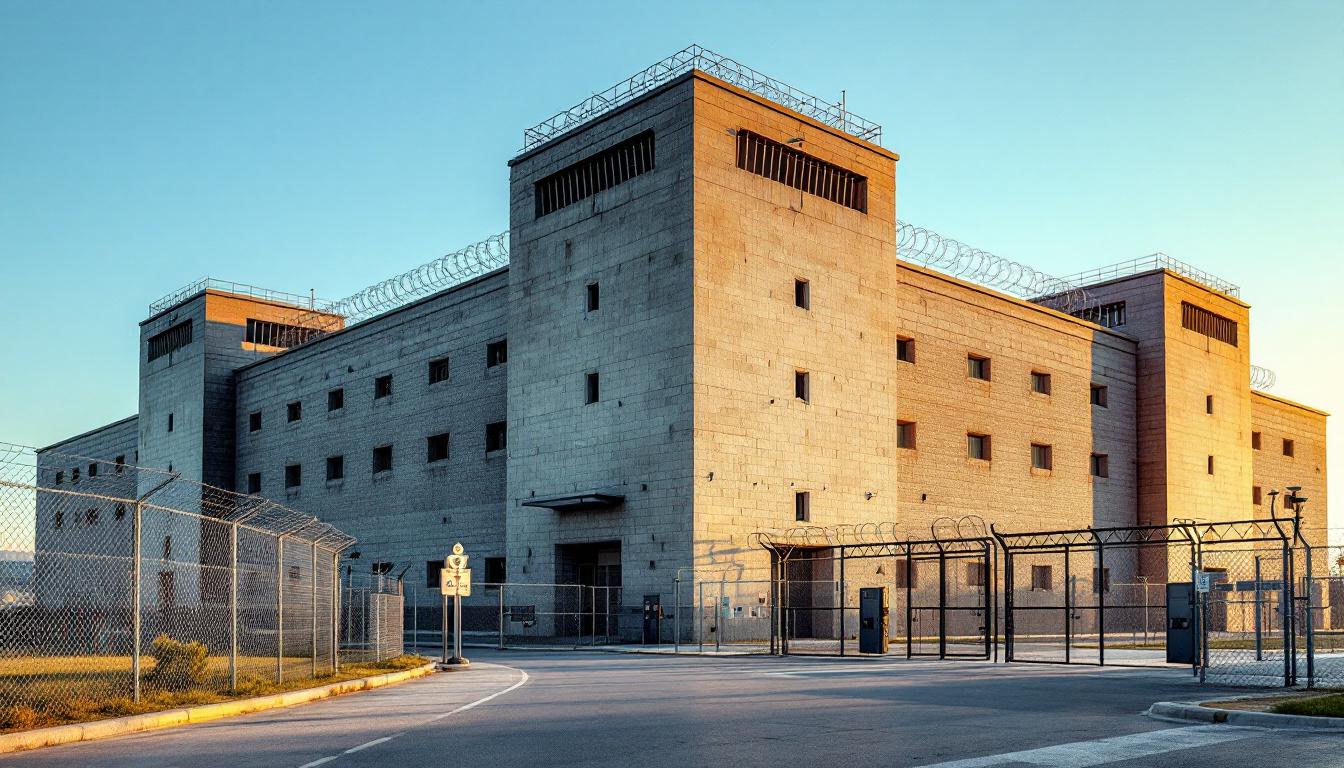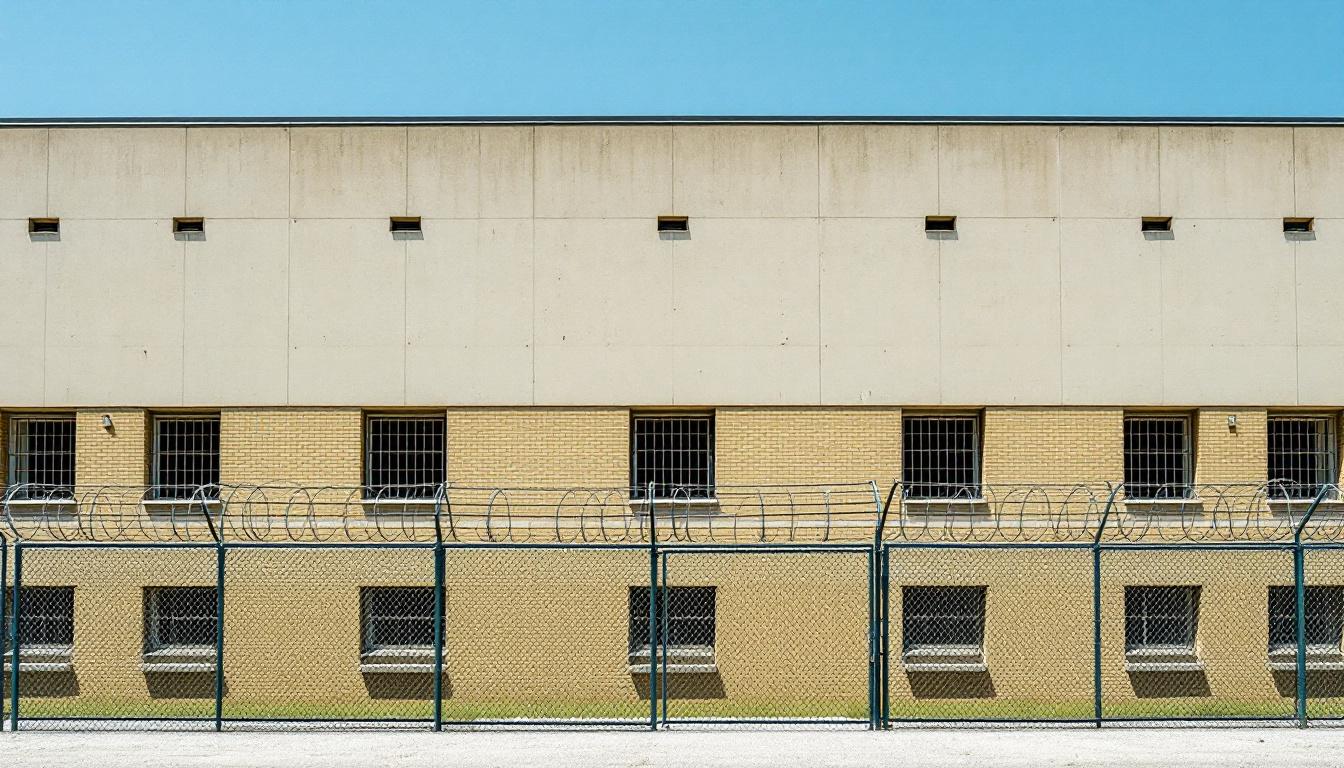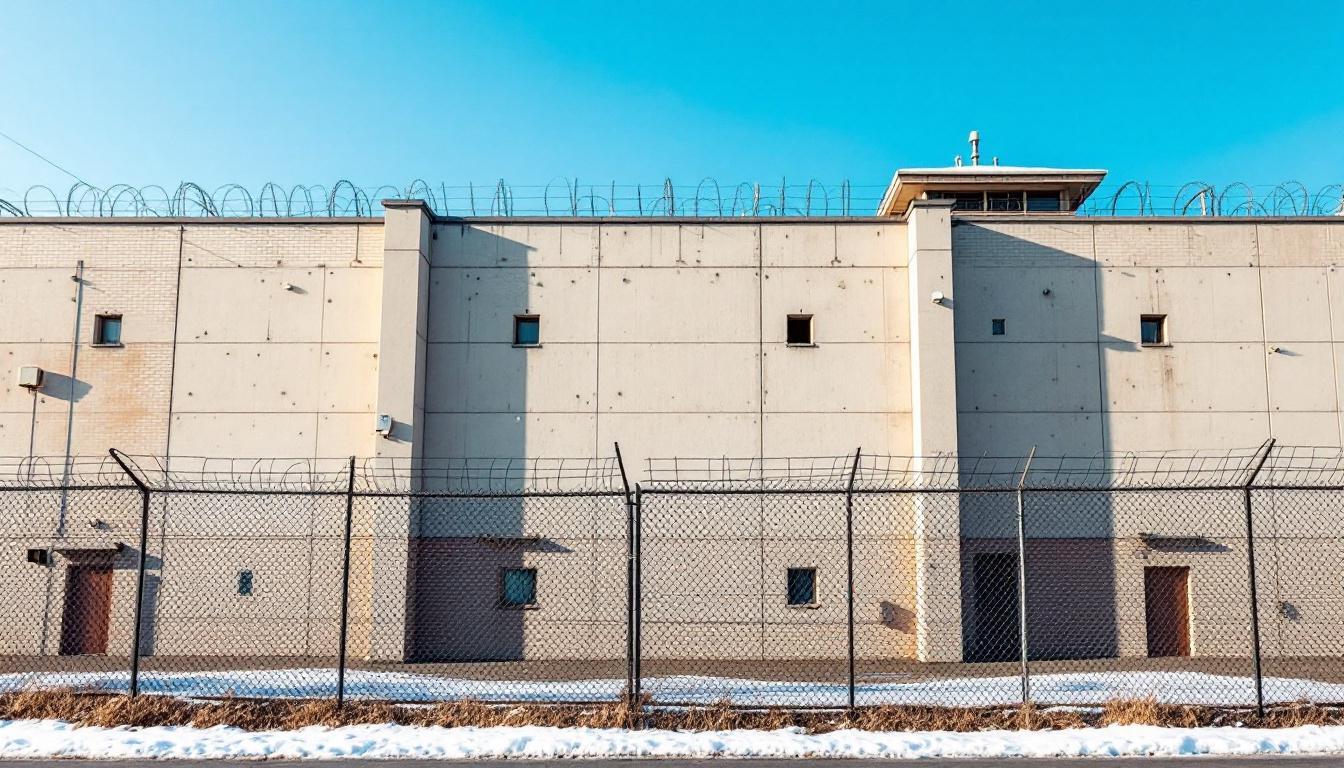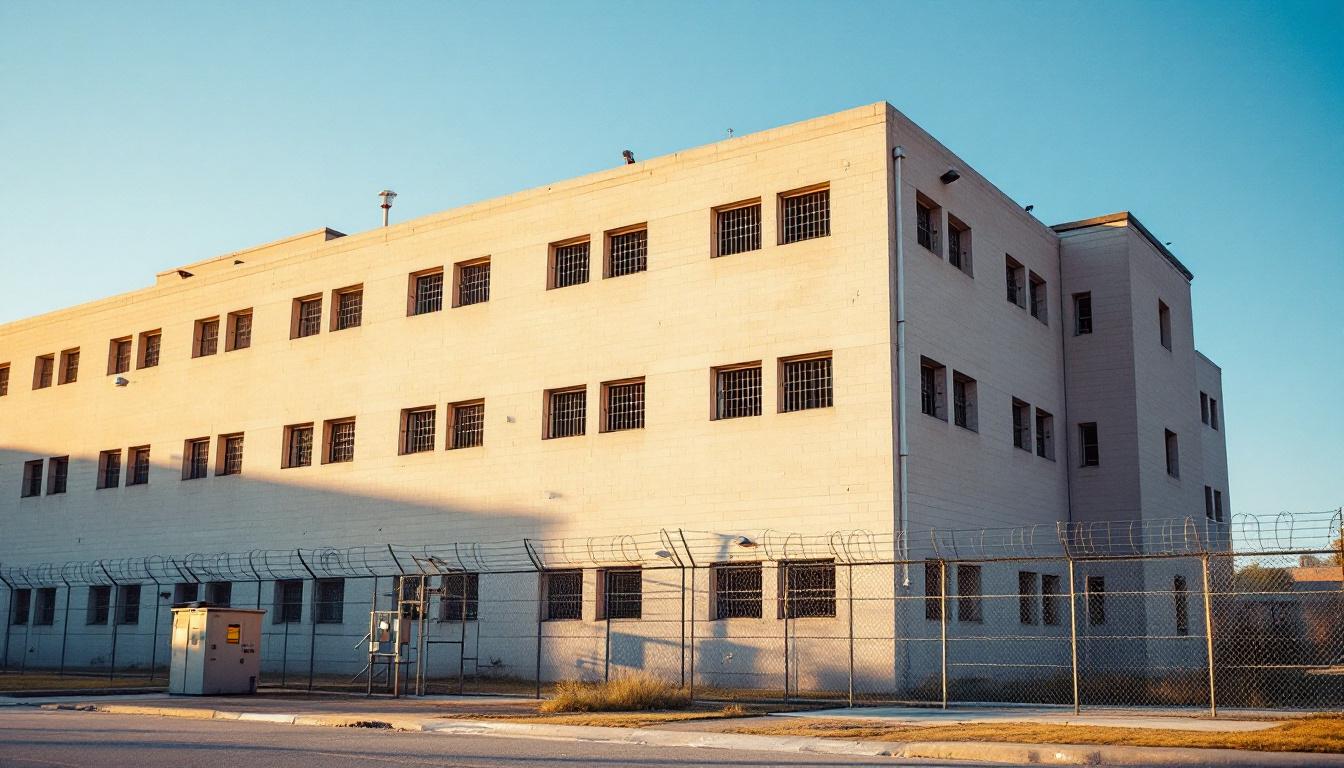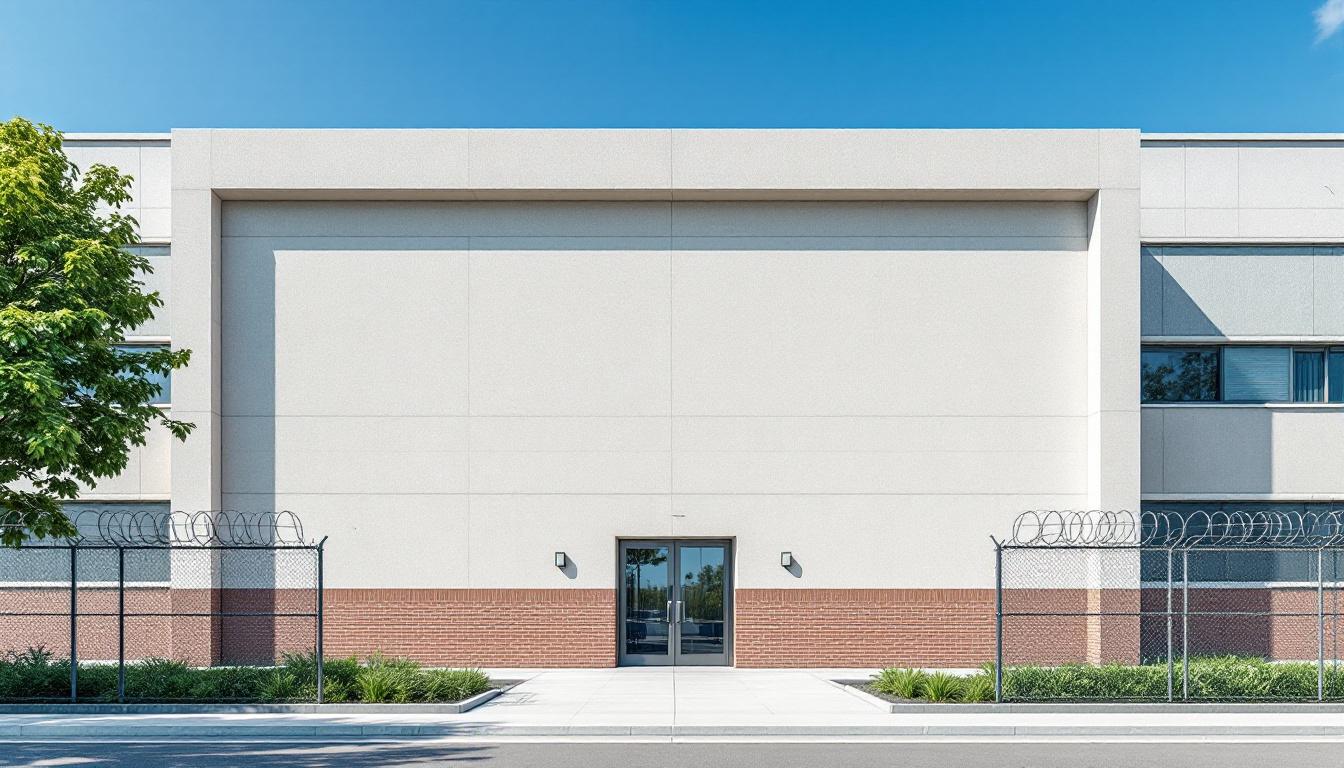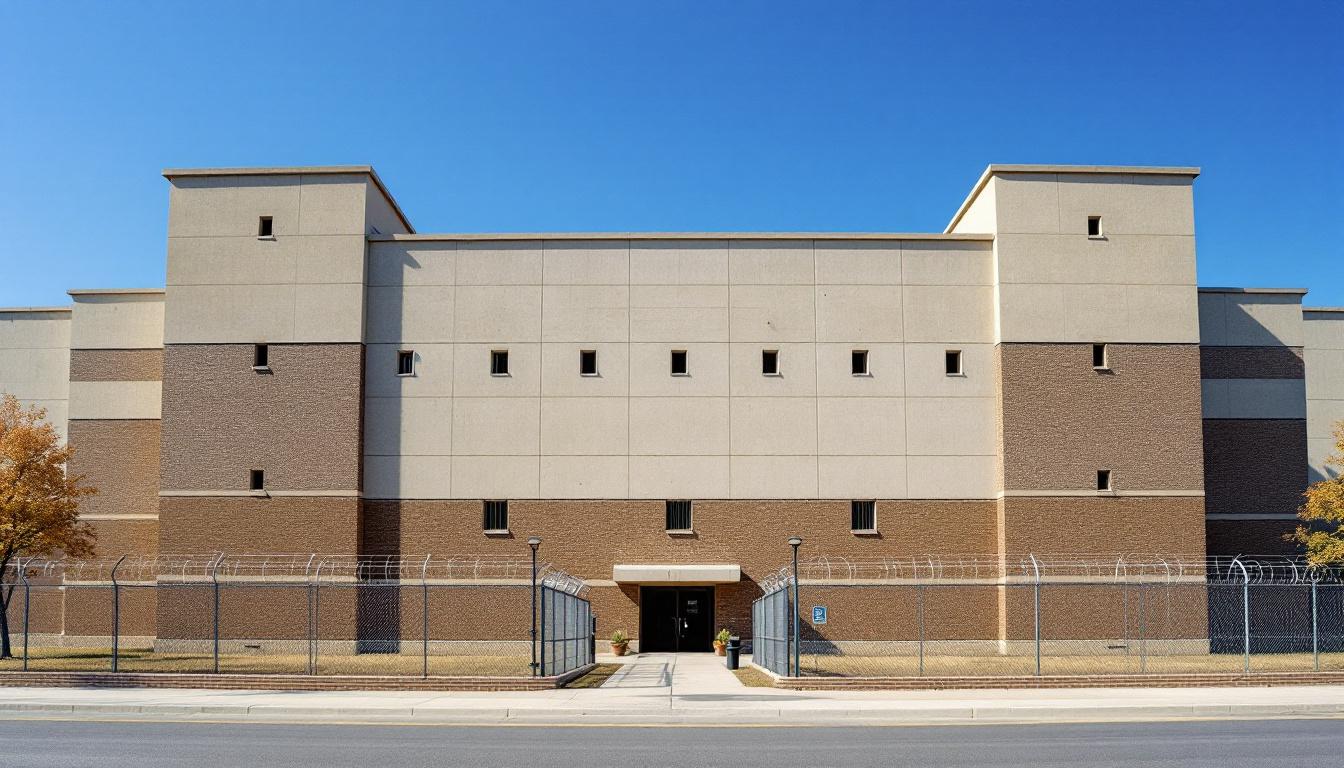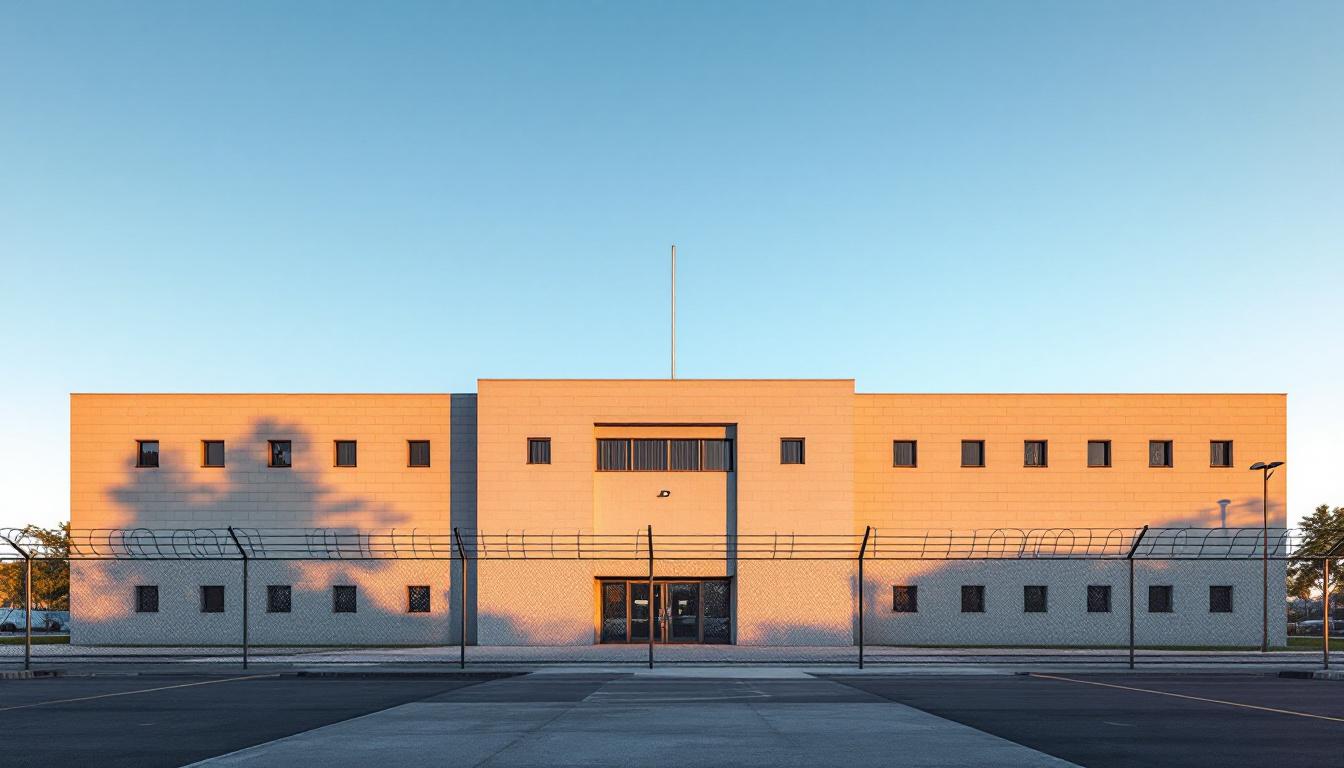
Quick Navigation
How to contact an inmate at Harold R. Banke Justice Center
This comprehensive guide will walk you through how to connect with an inmate at Harold R. Banke Justice Center. Follow the steps below to find an inmate and send letters and photos:
- Search for the inmate using our search tool below
- Create your account or log in to Penmate
- Write your message (up to 6,000 characters)
- Send instantly - inmates receive printed copies daily
Find an Inmate
Search for an inmate to start communicating today
Tip: You can search by first name, last name, or inmate ID number
To contact a person at Harold R. Banke Justice Center start by searching for the person on the official facility website. Perform a search by following these steps:
- Step 1: Enter their first name and last name into the search form and click "Search"
- Step 2: Locate their inmate record
- Step 3: Write down their Inmate ID and any housing information provided
Important! Be sure to enter the person's full name. Nicknames should not be used.
How to Send Messages to Inmates

You can use your phone or computer to send emails, letters, and photos to an inmate. Messages are sent electronically to inmate tablets or kiosks at the facility. If you would like to send a message, start by searching for an inmate at Harold R. Banke Justice Center.
Sending Photos and Postcards

A great way to send love and support to a loved one at Harold R. Banke Justice Center is to send photos and postcards. It only takes a few minutes to send photos from your phone and it makes a huge difference. You can also mail postcards with words of support and inspiration, or design your own postcard for special moments like birthdays and holidays.
Important! Be sure not to send any explicit photos or they may not be approved by the facility. You can also use a photo printing app like Penmate to make sure your photos are printed at the correct size (4x6 or 3x5) and are mailed according to the rules and regulations of Harold R. Banke Justice Center.
Frequently asked questions about Harold R. Banke Justice Center
-
How long does it take to deliver a message?
If you're sending an email message your letter is usually delivered within 24-48 hours. For messages sent via mail you should expect delivery within 3-7 days. All messages will need be approved by Harold R. Banke Justice Center.
-
How much does it cost to send a message to Harold R. Banke Justice Center?
You can send a message free using your phone or mail a message via USPS for the price of a $0.60 stamp and envelope. You can also purchase credits or e-stamps from services starting at $1.99.
-
What services can I use to contact an inmate at Harold R. Banke Justice Center?
Penmate
You can use Penmate to send letters and photos to an inmate from your phone. It's an easy way to stay in touch during your loved one's incarceration. Use the inmate locator to find an inmate's location and contact information, then you can send messages within a few minutes.
Securus messaging
Securus may be another option for communicating with an inmate at Harold R. Banke Justice Center. You can create a friends and family account and purchase credits to send messages. All messages will be reviewed and must be approved by the facility.
JPay
Some county jails and state prisons may support sending messages with JPay. You must register an account with the system, find your loved one, and purchase stamps to send messages. For some locations you can also attach photos.
Smart Jail Mail
You may also check if Smart Jail Mail is available at Harold R. Banke Justice Center. Smart Jail Mail is operated by Smart Communications and has contracted with some state and county jails. After purchasing credits, your messages and photos are sent to the facility, printed out, and then handed out to your loved one.
-
What is the mailing address of Harold R. Banke Justice Center?
Mailing address:
Harold R. Banke Justice Center
9151 Tara Blvd
Jonesboro, GA 30236
Phone: (770) 477-3395Business hours:
- Monday: 8:00 AM – 5:00 PM
- Tuesday: 8:00 AM – 5:00 PM
- Wednesday: 8:00 AM – 5:00 PM
- Thursday: 8:00 AM – 5:00 PM
- Friday: 8:00 AM – 5:00 PM
- Saturday: Closed
- Sunday: Closed
-
What are the visiting hours at Harold R. Banke Justice Center?
Visiting hours at Harold R. Banke Justice Center vary by housing unit and security level. Generally, visits are scheduled on weekends and holidays, with some facilities offering weekday visits. Contact the facility directly at (770) 477-3395 or check their website for the current visiting schedule. Visits typically last 30-60 minutes and must be scheduled in advance.
-
What items are prohibited when sending mail to Harold R. Banke Justice Center?
Prohibited items typically include: cash, personal checks, stamps, stickers, glitter, glue, tape, staples, paperclips, polaroid photos, musical or blank greeting cards, hardcover books, magazines with staples, and any items containing metal or electronics. Only send letters on plain white paper with blue or black ink. Photos must be printed on regular photo paper (no Polaroids). Always check with Harold R. Banke Justice Center for their specific mail policies.
-
How do I send money to an inmate at Harold R. Banke Justice Center?
You can send money to an inmate at Harold R. Banke Justice Center through several methods: 1) Online using JPay, Access Corrections, or the facility's approved vendor, 2) Money orders mailed directly to the facility with the inmate's name and ID number, 3) Kiosks located in the facility lobby, or 4) Over the phone using a credit or debit card. Fees vary by method, typically ranging from $2.95 to $11.95 per transaction.
-
Can I schedule a video visit with an inmate at Harold R. Banke Justice Center?
Many facilities now offer video visitation as an alternative to in-person visits. At Harold R. Banke Justice Center, video visits may be available through services like Penmate, Securus Video Connect, GTL, or ICSolutions. Video visits typically cost $10-20 for 20-30 minutes and must be scheduled in advance. You'll need a computer or smartphone with a camera and reliable internet connection. Contact the facility for their specific video visitation policies and approved vendors.
-
What identification do I need to visit an inmate at Harold R. Banke Justice Center?
All visitors must present valid government-issued photo identification such as a driver's license, state ID, passport, or military ID. Minors must be accompanied by a parent or legal guardian who can provide the minor's birth certificate. Some facilities require visitors to be on the inmate's approved visitation list, which may require a background check. Contact Harold R. Banke Justice Center for specific ID requirements and visitor approval procedures.
-
How can I find out an inmate's release date?
To find an inmate's release date at Harold R. Banke Justice Center, you can: 1) Use the online inmate search tool if available, 2) Call the facility's records department, 3) Contact the inmate's case manager or counselor, or 4) Have the inmate provide this information during a call or visit. For privacy reasons, some facilities only release this information to immediate family members.
Facility Overview
Contact Information
Harold R. Banke Justice Center9151 Tara Blvd
Jonesboro, GA 30236
Phone: (770) 477-3395
Official Website
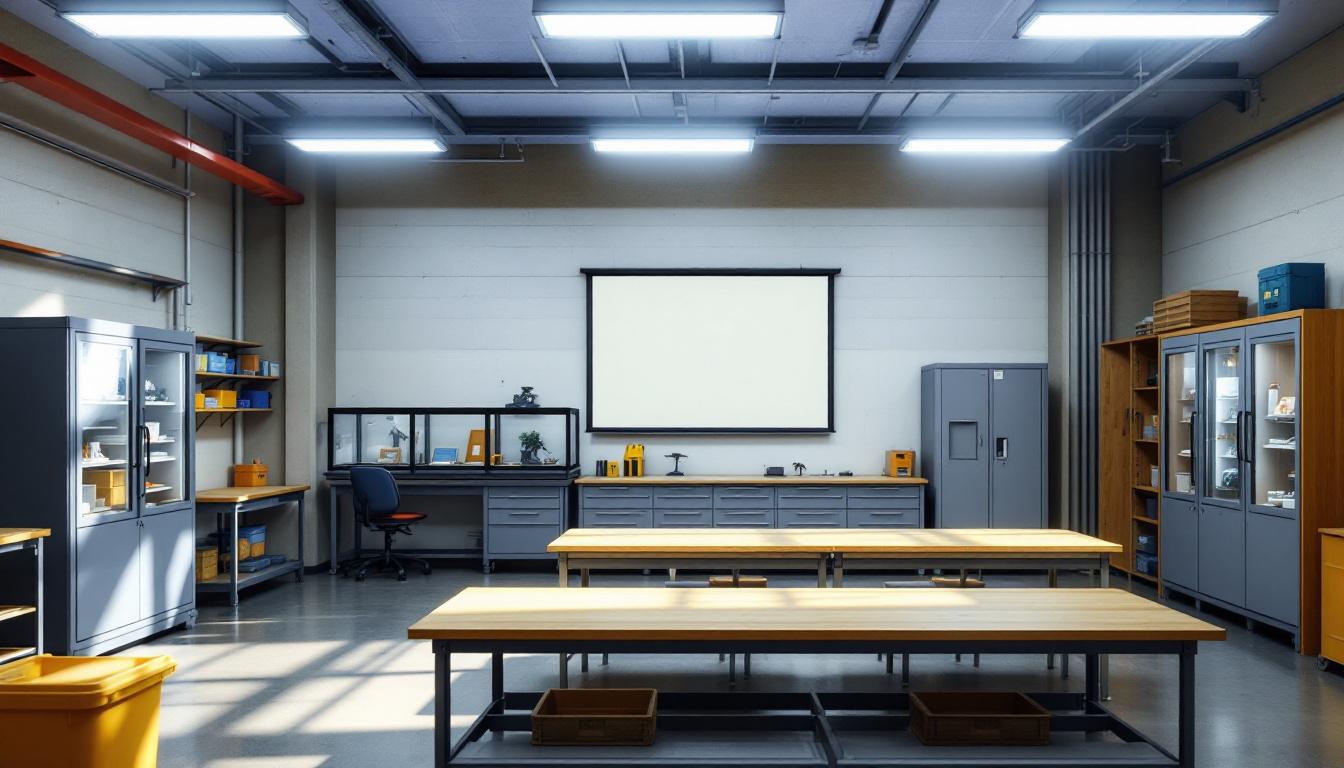
About Harold R. Banke Justice Center
Comprehensive educational programs, vocational training opportunities, and mental health services form the foundation of what Harold R Bank Justice Center, GA provides to individuals within its secure environment. This GA correctional facility operates with a dual commitment to maintaining public safety while creating pathways for personal growth and successful community reintegration. Located in Jonesboro, the facility typically offers structured programming designed to address both immediate needs and long-term rehabilitation goals.
Situated in Clayton County's seat, the correctional facility serves as an integral component of Georgia's broader justice system, drawing from the area's proximity to metropolitan Atlanta while maintaining its own distinct operational focus. Jonesboro's location provides certain logistical advantages for family visitation and community connections, elements that often support successful rehabilitation efforts. The facility generally maintains programs that may include educational advancement opportunities, substance abuse counseling, and job readiness training, all designed to prepare individuals for eventual reentry into their communities.
Security protocols and rehabilitation programming work in tandem at this Georgia institution, where staff typically focus on creating an environment that balances safety requirements with opportunities for personal development. The facility's approach to individuals services often emphasizes accountability, skill-building, and behavioral modification through various structured activities and counseling programs that may be available to the population it serves.
Programs & Services
Through a multifaceted approach to personal development, the Harold R Bank Justice Center in Georgia cultivates an environment where individuals can access diverse pathways toward meaningful change. The facility's comprehensive framework recognizes that successful reintegration requires addressing multiple dimensions of human experience, from practical skill acquisition to emotional healing and spiritual growth. This holistic philosophy permeates every aspect of the center's offerings, creating interconnected opportunities that support individuals at various stages of their personal journey.
Educational advancement serves as a cornerstone of the facility's programming, with opportunities that may include literacy development, GED preparation, and continuing education courses designed to strengthen foundational academic skills. In addition to these educational pathways, vocational training opportunities typically provide hands-on experience in marketable trades and technical skills. These programs often emphasize practical application, allowing individuals to develop competencies that align with regional employment demands while building confidence through measurable achievement.
The center's therapeutic and support services complement its educational and vocational offerings through grief counseling sessions that address personal loss and trauma, recognizing the profound impact such experiences have on individual growth. Faith-based services often provide spiritual guidance and community connection for those seeking this form of support, while building maintenance opportunities may offer practical work experience that contributes to facility operations. This comprehensive array of services typically operates through collaborative delivery methods, ensuring that individuals can access multiple forms of support simultaneously as they work toward their personal goals.
Daily Life & Visitation
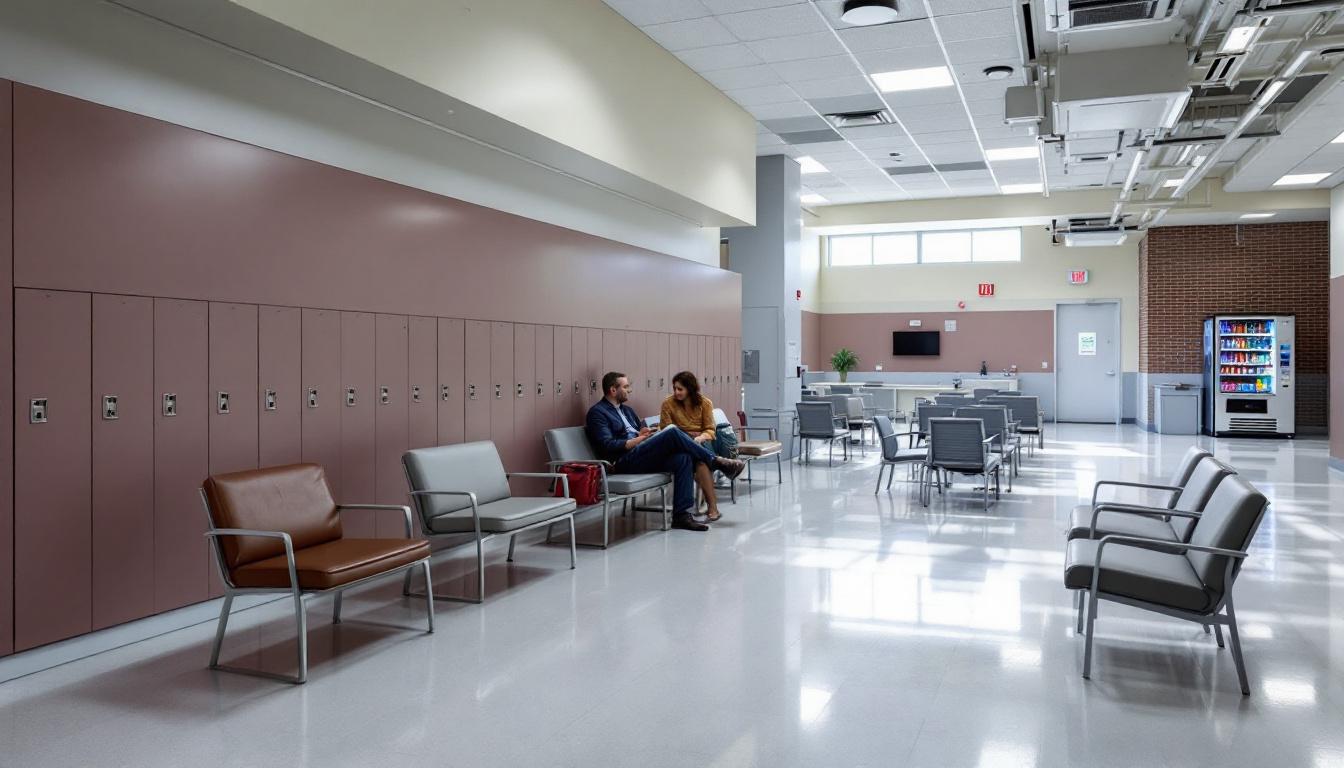
The rhythmic sound of facility announcements punctuates the carefully orchestrated flow of daily activities, as individuals at Harold R Bank Justice Center navigate a structured environment designed to balance security requirements with basic human needs. At present, the facility actively maintains a regimented schedule that typically begins before dawn with headcounts and continues through evening lockdown, offering individuals a predictable framework that includes meal times, programming opportunities, and designated periods for personal activities. The daily routine generally encompasses multiple counts throughout the day, with individuals moving between their housing units and various facility areas according to scheduled activities and work assignments.
In addition to this structured schedule, living accommodations within the facility typically consist of shared cells or dormitory-style housing units, where individuals may store limited personal belongings and maintain their assigned living spaces according to facility standards. The housing environment generally includes basic furnishings such as bunks, storage areas, and shared bathroom facilities, with individuals often responsible for keeping their immediate living areas clean and organized. Meals are usually served in designated dining areas at scheduled times, with the facility typically providing three meals daily that meet basic nutritional requirements, while commissary services may offer individuals the opportunity to purchase additional food items and personal care products when funds are available.
Despite this regimented environment, the facility often includes various programs and activities designed to provide structure and potential skill development, such as educational classes, vocational training opportunities, and recreational periods that may include access to television, reading materials, or outdoor exercise areas when weather and security conditions permit. Work assignments within the facility typically offer individuals the chance to contribute to daily operations through jobs such as kitchen duties, cleaning responsibilities, or maintenance tasks, which may provide a sense of purpose and routine. Family connections remain an important aspect of daily life, with visitation policies generally allowing scheduled visits from approved family members and friends, while communication options typically include monitored phone calls and correspondence, helping individuals maintain vital relationships with their support systems during their time at the facility.
Ready to Connect?
Start communicating with your loved one today
Search for an Inmate
